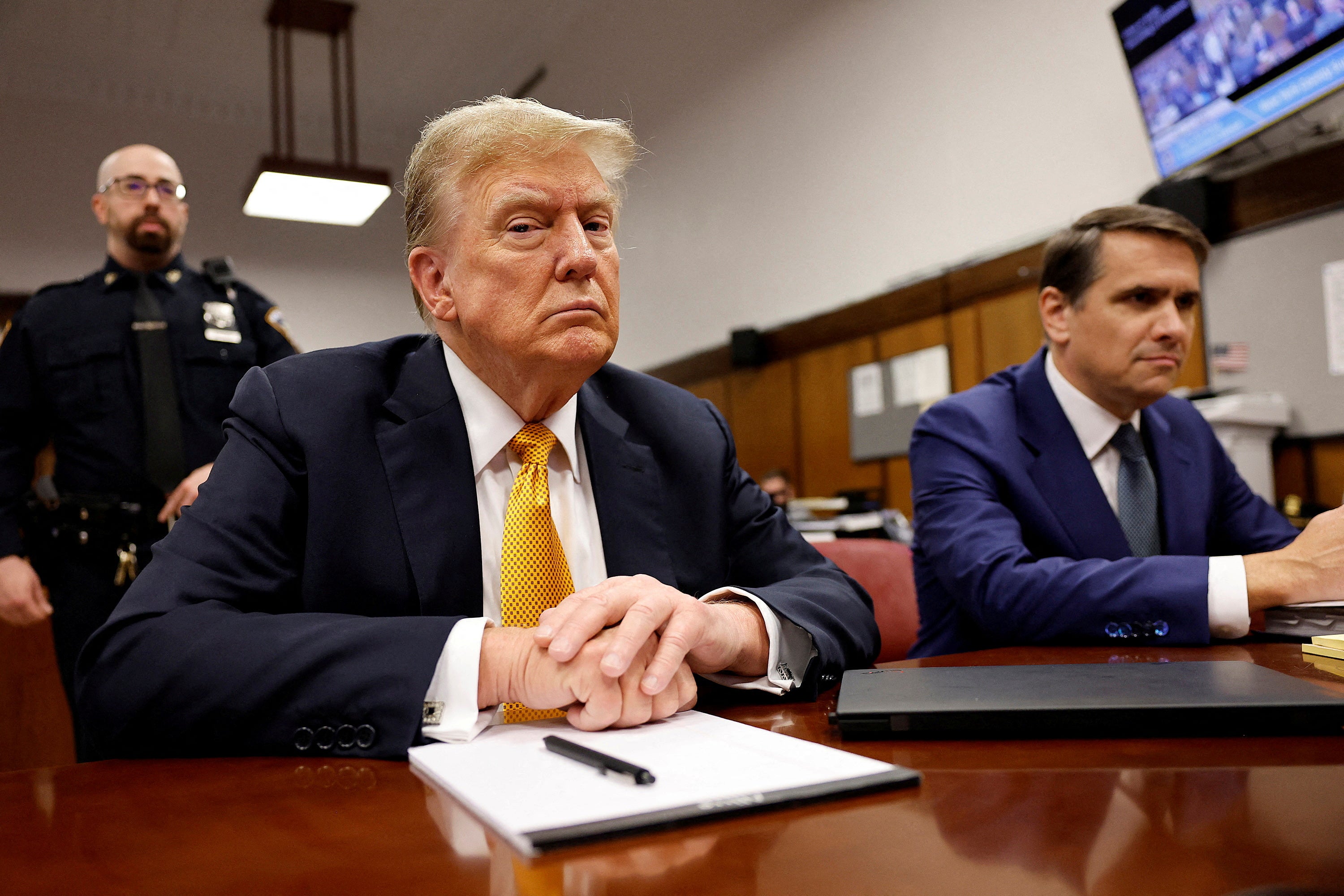Supreme Court shoots down Republican challenge to delay Trump’s hush money sentencing
Missouri’s attorney general claimed that gagging Trump amounted to election interference
Your support helps us to tell the story
From reproductive rights to climate change to Big Tech, The Independent is on the ground when the story is developing. Whether it's investigating the financials of Elon Musk's pro-Trump PAC or producing our latest documentary, 'The A Word', which shines a light on the American women fighting for reproductive rights, we know how important it is to parse out the facts from the messaging.
At such a critical moment in US history, we need reporters on the ground. Your donation allows us to keep sending journalists to speak to both sides of the story.
The Independent is trusted by Americans across the entire political spectrum. And unlike many other quality news outlets, we choose not to lock Americans out of our reporting and analysis with paywalls. We believe quality journalism should be available to everyone, paid for by those who can afford it.
Your support makes all the difference.Donald Trump’s sentencing in his hush money trial won’t be delayed by a long-shot lawsuit from Missouri’s Republican attorney general, whose challenge to a gag order against the former president was shot down by the Supreme Court.
The challenge from Andrew Bailey argued that a gag order and a potential jail sentence against the Republican presidential nominee amounted to election interference and would deprive Missouri voters from hearing the candidate before they cast their ballots.
Justices denied that challenge in a brief order on Monday. The order also noted that Justices Samuel Alito and Clarence Thomas would have allowed Bailey to at least file the suit, but would not have granted him his requested emergency relief.
“New York is working to hijack our national election and jail President Trump. Missourians absolutely have an interest in ensuring that does not happen,” Bailey wrote on X. “The fight is not over.”
After a seven-week trial in Manhattan, a jury convicted Trump on all 34 felony counts of falsifying business records against him on May 30.
He was found guilty of submitting fraudulent checks and invoices related to reimbursement payments to his former attorney Michael Cohen, who paid off adult film star Stormy Daniels in the weeks before Election Day in 2016 to avoid her politically damaging story about having sex with Trump from going public.
Before the trial was underway, New York Justice Juan Merchan had issued a gag order — which has been scaled back — to prevent Trump from publicly attacking jurors, witnesses, court staff and staff with the Manhattan District Attorney’s Office. He violated the order at least 10 times and was fined $10,0000, with a warning from the judge that any future violations could result in jail time.
Bailey — who took the rare step of filing a challenge directly to the Supreme Court, which has jurisdiction over interstate disputes — argued in his case that “radical progressives in New York are trying to rig the 2024 election by waging a direct attack on our democratic process.”

He has also recently testified to Congress about what he called the “politically motivated, legally specious, and corrupt prosecution” of the former president and demanded that the Department of Justice turn over documents about Trump’s prosecutions.
The office of New York Attorney General Letitia James argued in briefs to the Supreme Court that Bailey’s argument “consists of generalized and speculative grievances.”
Trump “can already speak about all of the topics” that Bailey claimed he is barred from, James wrote.
His complaint “is clearly and impermissibly seeking to further the individual interests of former President Trump,” she added.
Trump’s attorneys have tried to overturn his conviction in the hush money case by pointing to the Supreme Court’s presidential “immunity” ruling, which they argue should apply to the evidence used to convict him.
Merchan is expected to issue a decision on those arguments by September 6, and Trump is set to be sentenced on September 18.
